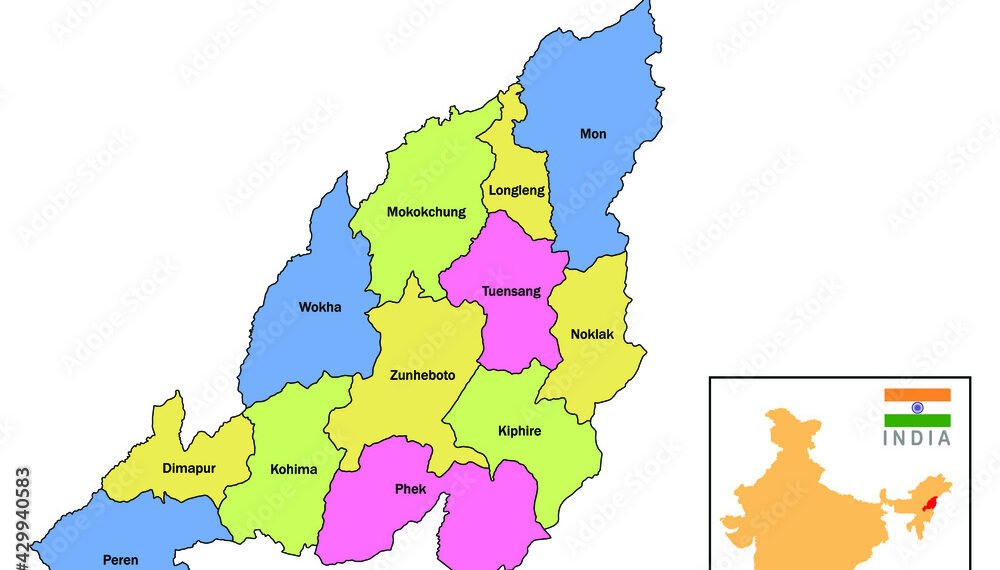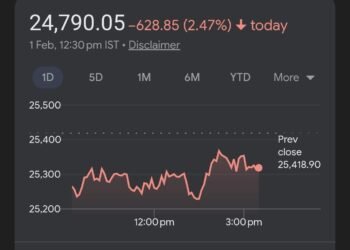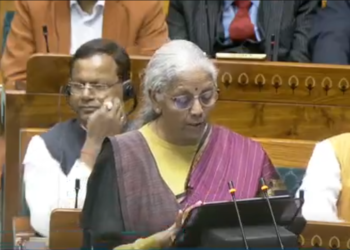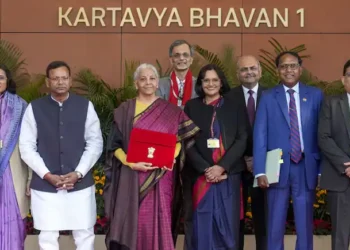The court initially stayed the government order in May after a joint petition by four tribal bodies challenged what they called a discriminatory and unconstitutional exercise to reassess their indigenous status in Nagaland.
BY PC Bureau
June 25, 2025: The Kohima Bench of the Gauhati High Court will take up tomorrow the Nagaland Government;’s affidavit on proposed enumeration exercise aimed at verifying the ancestry of the Garo, Kuki, Kachari, and Mikir (Karbi) communities settled in Nagaland prior to December 1, 1963.
The case listed in court number 1 before Justice Budi Habung.
On June 2, 2025, Justice Kakheto Sema noted that Imti Imsong, the learned Additional Advocate General, requested three weeks’ time to file an affidavit-in-opposition. Consequently, the Judge granted the extension.
This order effectively maintaineds the status quo, ensuring that no action is taken under the controversial enumeration process until the matter returns for hearing.
READ: Kuki Leaders Seek End to ‘Aggressive’ Central Agency Action
The initial stay was issued on May 12, 2025, in response to a writ petition (WP(C)/72/2025) jointly filed by four prominent tribal bodies: the Kuki Inpi Nagaland, the Nagaland Garo Tribal Council, the Kachari Tribal Council Nagaland, and the Karbi Union Nagaland. Justice Yarenjungla Longkumer passed this interim order after hearing the arguments of the petitioners’ counsel, A. Zhimomi and his team, and the Additional Advocate General representing the State.
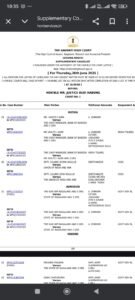
Background and Petitioners’ Arguments:
The petitioners are challenging the Nagaland government’s Home Department order dated September 20, 2024, which was issued following a Cabinet decision on September 12, 2024. This order mandated the enumeration of individuals belonging to the Garo, Kuki, Kachari, and Mikir (Karbi) communities to determine their eligibility for Indigenous Inhabitant Certificates (IIC) and Permanent Resident Certificates (PRC). A subsequent notification dated October 1, 2024, outlined the timeline for this verification exercise, which was scheduled to commence on November 1, 2024, and conclude with a final list by May 6, 2025, although it reportedly did not begin.
The core argument of the petitioners is that they are constitutionally recognized as Scheduled Tribes of Nagaland under the Scheduled Tribes Order, 1970, and therefore are entitled to equal treatment with all other recognized tribal communities within the state. They assert that the proposed enumeration exercise is discriminatory in its premise and lacks a valid legal foundation.
READ: Tribal Uprising in Assam Over Township and Dam Projects
“The state has no jurisdiction to question the tribal status of communities already notified as Scheduled Tribes of Nagaland,” the petitioners argued. They further contended that this targeted verification process undermines their constitutionally guaranteed status and violates the fundamental principles of equality and non-discrimination.
Court’s Directive:
Acknowledging the gravity of the matter, the Court directed that the state government must refrain from taking any action concerning the enumeration process until the next hearing. The Court also granted permission to the state respondents to file their counter-affidavits and instructed the petitioners to provide the necessary copies of their submissions to the Additional Advocate General.
The current stay order effectively halts all proceedings related to the controversial enumeration drive, preventing any steps towards identifying individuals’ eligibility for IIC/PRC based on their ancestry within the four named communities. The petitioners have sought the quashing of the government orders they deem unlawful, expressing concerns that this move could lead to arbitrary exclusion or denial of their indigenous status.



